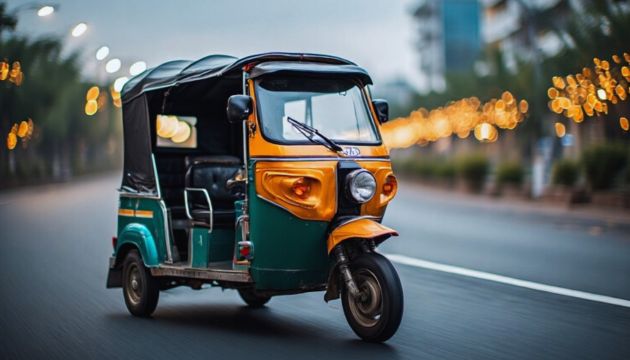KARACHI – The Commissioner of Karachi has imposed a two-month ban on the movement of rickshaws on 20 key roads across the city.
According to an official notification, the decision was made on the recommendation of the DIG Traffic. Both 3-seater and 5-seater rickshaws will not be allowed to enter these roads during the ban period.
Traffic police have been given full authority to ensure the implementation of the ban.
The roads where rickshaws are banned include:
Shahrah-e-Faisal, Shahrah-e-Quaideen, I.I. Chundrigar Road, Shershah Suri Road, Shaheed-e-Millat Road, Abdullah Haroon Road, Do Talwar Shahrah-e-Firdous, Stadium Road, Sir Shah Suleman Road, Rashid Minhas Road, Mauripur Road, and Shahrah-e-Pakistan.
Other roads include:
Hub River Road, Quaidabad to Landhi 89, University Road, Korangi Road, Orangi Road, Superhighway to Malir Halt, and Surjani Abdullah Chowk.
Earlier, a similar ban was imposed on 11 roads last month. However, traffic police failed to enforce the restrictions effectively. The new ban also comes after complaints that rickshaws using self-decided routes were causing traffic problems.
Meanwhile, in other news from Karachi, the city has once again been listed among the world’s least liveable cities in a recent report by The Economist.
According to the annual Global Liveability Index 2025 by the Economist Intelligence Unit (EIU), Karachi ranked 170th out of 173 cities.
— ALSO READ —
Karachi introduces municipal bonds to fund city projects
The ranking was based on five factors: healthcare, culture and environment, education, infrastructure, and stability. Karachi scored only 42.7 points out of 100.
Copenhagen was named the most liveable city with 98 points, followed by Vienna, Zurich, Melbourne, and Geneva.
Karachi was the only Pakistani city on the list but was ranked among the lowest. Last year, Karachi was ranked alongside cities like Lagos, Tripoli, Algiers, and Damascus. In the year before that, it stood at 169th position.
In October 2024, the Asian Development Bank (ADB) also warned that urban centers in Pakistan, especially Karachi, are becoming increasingly unmanageable and unliveable. The report highlighted serious issues such as traffic, pollution, mismanagement, and social inequality.
In Karachi’s eastern districts, a large number of low-income residents live in poor conditions, while the privileged class resides in cantonment areas and private societies. The city remains divided along religious and ethnic lines and has a history of unrest and violence.














